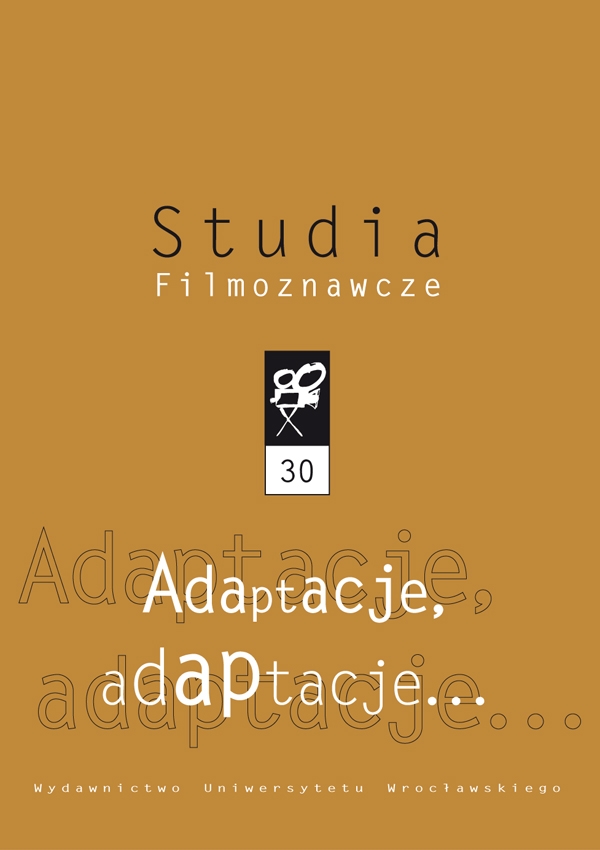

Artykuły

PROVINCIAL BROTHERHOOD: KRZESZOWICE, PIŃCZÓW ANDRZEJ BARAŃSKI’S BY THE RIVER NOWHERE AS AN ADAPTATION OF STANISŁAW CZYCZ’S KRZESZOWICKIE SHORT STORIES
This article discusses the relation between Stanisław Czycz’s short stories included in volumes Nim zajdzie księżyc and Nie wiem co powiedzieć and its film adaptation directed by Andrzej Barański – By the River Nowhere Nad rzeką, której nie ma. Stanisław Czycz is considered as one of the most original Polish 20th century writers. Piotr Marecki in his article focuses on two Czycz’s volumes: Nim zajdzie księżyc and Nie wiem co powiedzieć which are collection of short stories located in author’s hometown Krzeszowice – a small Polish village near Kraków. These short stories differ from his previous catastrophic stories – they attempt to create youthful, Arcadian small-town life. This new current of his prose praises everyday life and its absurdity; Czycz tries to find beauty in banality, wealth in emptiness, he escapes into small town paradise where inhabitants talk about triviality, boredom and dullness of everyday life routine. Seemingly – they talk about nothing, seemingly – nothing is happening in the plot. Czycz makes the oposition between reality and dreams, between monotony and willingness to esacpe into an imaginary world. This lazy way of portraiting Polish average provincial small town inspired Polish director Andrzej Barański, known for his lyrical movies showing casual simple life and focusing on mentality of Polish small towns. As well as Czycz, Barański is interested in “everyman” as his plots are located in everyday, unattractive for mass spectator realities.
Czycz’s and Barański’s interests have finally met. Barański made a film By the River Nowhere, which is an adaptation of Czycz’s short stories mentioned at the beginning. Instead of showing authentic town as Czycz did, Barański transormed the town into a typical small town and changed its inhabitants into archetypal heroes. The director based his movie on a few of Czycz’s stories, but a story about unfulfilled love plays the main role in the plot of the film. He made a universal tale about youth, careless holiday, first love and desire for having great and intensive life. The adaptation of Czycz’s prose is very intimate, with a subtle atmosphere and reminds Godard’s style of filming.